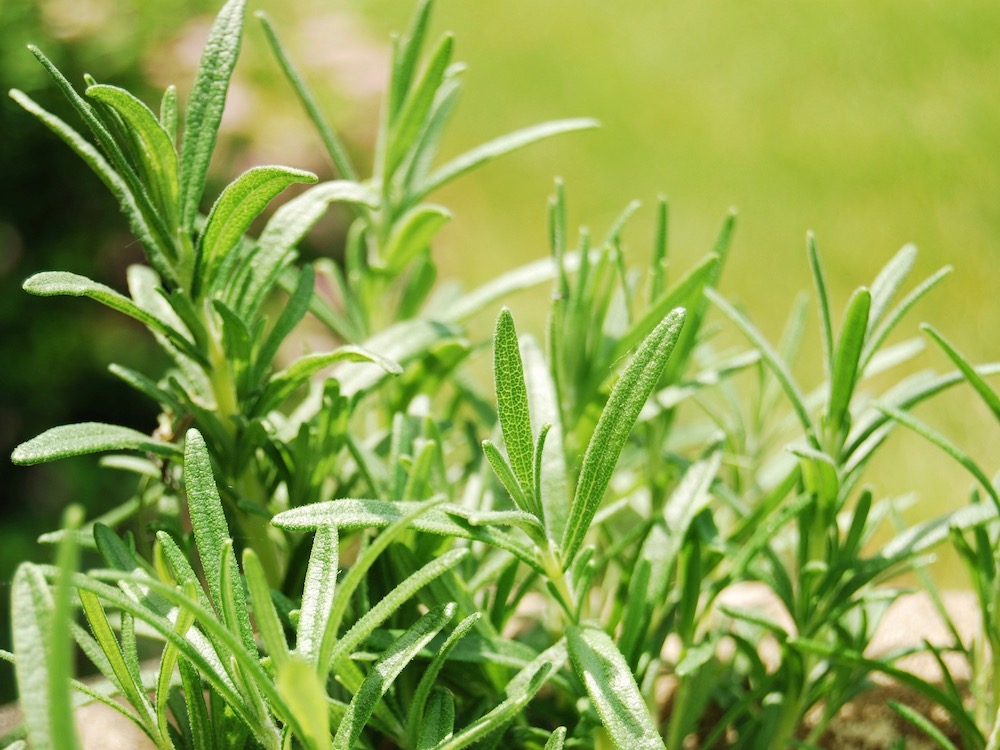
Cypress oil is one of many essential oils in the natural health marketplace that help address multiple areas of wellness, both internally and externally.
Taken from the Cupressus sempervirens family of trees, a needle-bearing group found in deciduous and coniferous regions, the oil has been used as a home remedy for hundreds of years for anything from wound healing to a digestion aid.
In the following article, we will be discussing each of the numerous benefits in further detail. We will also talk a bit more about where it comes from, address cypress oil as a blending agent, and touch on the few but potential side effects.
So, without further ado, let’s begin.
Where Does It Come From?
The Cupressus sempervirens family of trees occurs most frequently in the Mediterranean region, though it has spread to other parts of the globe, particularly the British Isles, New Zealand, and, in the US, Florida and the Pacific Northwestern states of Oregon and Washington.
It can thrive in a cooler climate like British Columbia as well. The extraction method uses the needles and twigs of young branches. It is carried out through steam distillation.
While it works great on its own — and we’ll be getting into just how great it works in a moment — it also works well as a blend. Before getting full-bore into the benefits, here are some blending uses that you may wish to consider.

Rosemary is one of the essential oils that blends particularly well with cypress.
A Dozen Blending Buddies
You may want to start using cypress oil by itself but as you do so, keep in mind some of the other essential oils out there and how they might be able to bring additional bang for the buck to use.
Here are a dozen essentials that can prove quite effective as blending agents.
- Lime: This is a particularly effective blending buddy because of the added boost it gives when addressing problems associated with stress and anxiety.
- Lemon: Improves respiratory conditions and enhances one’s skin care needs. Considering cypress oil is effective at acne prevention and fighting asthma, these two can make for a particularly potent concoction.
- Orange: Numerous benefits, but often connected to use as an aphrodisiac. When taking into account the cypress oil’s blood flow benefits, blending the two can create a potentially potent mix for combatting sexual performance issues.
- Clary sage: This oil can reduce hot flashes and bring hormonal balance in menopausal women. If going through this transition, clary sage and cypress oil together can keep the body and mind in a state of tranquility.
- Bergamot: This oil has a sedative effect when diffused through the air or applied topically. Given that cypress oil shares this characteristic, it can increase the strength and be used even more effectively in a blend when used for those purposes.
- Juniper: Widely used for its respiratory benefits, juniper oil also is an effective oil in the fight against insomnia. When combined with cypress oil — an anti-anxiety agent that also addresses respiratory issues — it can lead to more restful and fulfilling sleep.
- Frankincense: An anti-stressor with skin-rejuvenating effects, frankincense blends well with cypress oil to form a powerful skincare product and wound healing agent.
- Marjoram: Great for internal, external, and air-diffusing uses, marjoram is a great cardiovascular booster. Couple that with cypress oil’s anti-high cholesterol effects, and your heart couldn’t be happier.
- Pine: Extracted in much the same way as cypress oil and sharing many of cypress trees’ beneficial effects, the two combined can create a potent aromatherapy treatment for allergies and sinuses; they also stimulate blood flow, decrease swelling, and ease inflammation.
- Lavender: This oil’s most popular use is as a sleep aid. So much of a great night’s sleep hinges on airflow and a lack of bodily stress. Paired together, lavender and cypress oils help to counterbalance the body’s natural tendencies toward stress and anxiety.
- Rosemary: This oil’s primary area of effectiveness is the immune system. It also helps the skin to heal. Paired with cypress, the two are able to accelerate the wound healing and infection recovery processes.
- Sandalwood: The oft-quoted benefits of sandalwood oil are pretty much all over the place. It helps skin; it’s antiseptic; it’s great for coughs, diarrhea, indigestion. Anxiety. Cypress oil shares many of these attributes as well. When mixed with sandalwood, it can enhance each of these benefits greatly.
Now that we’ve covered the origins of cypress oil and the best blending agents — as well as their key effects — let’s get to what the oil can do for you on its own. So, without further ado, here are the…
Benefits and Uses of Cypress Oil
Some of these are closely related to one another, and you might even be able to combine them into a single header. We chose not to do that because not all of these “related” issues manifest in the same ways.
This also makes it easier to go down the list and find the ones that apply to you and the ones that don’t. Let’s start with how cypress oil…
1. Helps to Heal Wounds
Frankincense often is mentioned at the head of the class when it comes to expediting the process of wound healing, but cypress oil is one you shouldn’t overlook.
The oil possesses antiseptic qualities that not only get the job done — it gets it done faster than frankincense and a variety of others such as myrrh, tea tree, curry, and licorice.
Complementary & Alternative Medicine published a report in 2014 showing cypress had antimicrobial properties that targeted and killed bacteria on the skin and aided in the prevention of future growth.
The study’s authors add that the extract “can be used as (a) natural preservative ingredient in food and/or pharmaceuticals.”
2. Can Clear Up Infections
Piggybacking onto benefit no. 1, we should take a moment to say that cypress oil not only is good for healing wounds, but its antimicrobial effects also make it a great agent for helping where infections exist to clear up the area.
Of course, other treatments may need to take precedent. For example, boils and carbuncles are most effectively handled through incision and drainage.
Not pleasant, we know, but cypress oil is better as a deterrent or as a helping agent once the threat has been removed. If you’re dealing with something that is already in full-rage, it could only serve to irritate.
For best results, check with your doctor before applying topically to the affected region.
3. As a Treatment for Cramps
Muscle cramps and spasms can occur throughout the body and for a variety of reasons. Fortunately, cypress oil may be an effective deterrent in a number of ways.
It helps to relax the muscles whether they be in the legs, the respiratory system, or your digestive tract.
Users have stood by it for help with everything from mild twitching to full-on convulsions. There also is a condition known as spasmodic cholera, which can be fatal in some cases.
It involves severe diarrhea and vomiting. It’s brought on by a bacterial infection of the small intestine. Cypress oil’s antimicrobial properties can be helpful in battling some of the symptoms.
4. Assisting with Muscle Pulls
Muscle pulls are characterized by overstretching, straining, or tearing. In addition to dealing with spasms and cramps, cypress oil has been found by many to be an effective treatment for these.
If you lead an active lifestyle, you’ll want to have some of this on-hand, particularly as your body ages and begins to show more signs of wear during strenuous physical activity.
5. Aids Detoxification
The body’s liver is the central command center for the elimination of waste. In conjunction with the kidneys, the two organs work well in removing waste from the body.
But the use of cypress oil can offer a boost to these two areas’ natural functions by increasing the frequency of urination.
It also activates the sweat glands and promotes a steadier amount of sweating during heavy physical activity without causing the glands to overreact during sedentary situations. That means you can rest easy it won’t overdo it in instances of the lighter physical activity.
(Great news for those of you who fear the dreaded pit rings when you’re just trying to do ordinary things like giving presentations or socializing with others.)
6. Assists with Chronic Bedwetting
One of the biggest drivers of chronic bedwetting is irregularity during the day. As we’ve already established, cypress oil can promote more frequent urination throughout the day so that your body isn’t holding onto any of the excess waste when you go down for the night.
Most adults won’t need it for this measure directly. But if you’re a parent still dealing with a bedwetting child long after the time they should be doing it, then consider giving this remedy a try through either diffusion or topical use during the day.

Acne is one of the most commonly-treated issues when using cypress oil.
7. Prevents Acne
Acne occurs due to blockages in the pores that can lead to swelling and infection. Obviously, keeping those pores clear is the way to avoid it, but that’s difficult to do when you have trouble regulating the excretions of your sebum glands.
Where cypress oil really proves effective is when it comes to the bacterial growth and infection that can occur during those blockages. Cypress oil has properties that help contract the pores while killing bacteria and clearing up areas prone to blemishes.
8. Tightens the Skin and Muscles
In addition to contracting the pores, cypress oil is good at tightening the skin and the muscles. This can produce benefits across the entire body, but it’s particularly useful as a beauty tool for smoothing out lines and wrinkles.
Combine with other beauty agents like myrrh, frankincense, and/or aloe vera for an additional boost.
Of course, no oil is going to produce an actual fountain of youth for your face. Other recommendations for slowing down the aging process — work on you. You can do that in any of the following ways.
- Create a fulfilling career path
- Surround yourself with positive people and situations
- Don’t dwell on the past
- Exercise and eat right
- Forgive yourself
And yes, there’s research to back this up. But incorporating oils with astringent properties (like cypress oil) can create additional benefits.
9. Lowers Cholesterol Naturally
We’ll get into the blood flow benefits of cypress in the next two areas, but for now, we’d like to talk about its role in cholesterol counts. Cypress and rosemary oil are often mentioned in the same breath when people talk about natural ways to lower cholesterol.
That’s because they promote strong flow through veins and arteries, thus flushing out your LDL.
Combine with high-fiber diets for an added natural boost. But don’t mess around with high cholesterol very long. It’s one of the first indicators that someone will be susceptible to heart disease as they get older.
And the years can go by more quickly than you think. When you don’t do anything to address the issue, it can sneak up on you fast.
If increasing your fiber and using cypress oil isn’t doing the trick, then definitely see your doctor and consider getting on a statin.
10. Boosts Blood Clotting
Blood clots often sound scary because if one escapes and goes to the heart, it carries great odds of proving fatal. That said, if your blood didn’t have the ability to clot, it would result in excess bleeding (see no. 11), and could prove equally as deadly.
Cypress oil’s astringent properties extend to blood flow and help to promote blood clotting when needed. That’s also why people tend to use it as a wound-healing agent.
11. Prevents Excess Bleeding
Conditions like hemophilia are very rare, with about 200,000 cases reported annually in the US alone. They’re characterized by an inability to stop bleeding (e.g., clot). A simple cut can reduce in a much higher amount of blood loss.
The condition is incurable, though it can go away on its own. Use of cypress oil may be able to assist as it prevents excess bleeding from occurring.
While you will still want to seek the help of a medical professional, it can’t hurt to consider cypress for daily use if you suffer from this condition.
12. Effective Circulation Booster for Diabetes
One of the major problems for diabetics is poor circulation. That leads to feelings of numbness or coldness in the hands and feet and can be a massive deterrent to healthy physical activity, which only serves to make the harmful effects of diabetes worse.
Diabetes is a manageable condition, but it also can prove fatal. And it affects a lot of people both stateside and globally on an annual basis. Managing it as a condition is left to diet, exercise, and doctor-prescribed medications.
But that discomfort that comes from poor circulation can get a much-needed boost from the use of cypress oil through either aromatherapy or blending with a carrier oil or lotion.
13. Helps Prevent Respiratory Issues
Cypress oil attacks two major areas of the respiratory system: phlegm buildup and spasms. By clearing passages, it makes it easier to breathe for the person dealing with the issue.
This also de-stresses the lungs and makes it easier for them to operate efficiently.
For severe respiratory issues, you’ll want to see a doctor as an antibiotic may be necessary. But keeping a small jar of cypress oil on-hand for aromatherapy or topical application under the nasal passages can give a much-needed jolt that helps get the air flowing.
14. Serves as a Pleasant and Effective Natural Deodorant
If you’re looking for a nice, natural fall scent for your room or workspace, then consider diffusing cypress oil. If you’d like to make it more personal, there are natural deodorants and soaps that incorporate it into the recipe.
Either way — through the air or topical use — it’s a safe and pleasant natural alternative to the chemical-added name brands.
15. Eases Anxiety
Anxiety, stress, and depression are common facets of the western world. We want what we want and we push ourselves hard to get it, regardless of whether it’s really “right” for us. The drive to keep up with the Joneses isn’t doing us any favors.
It’s important to pinpoint the source of your stress and do something about it. But many stressors are unavoidable, and that’s where cypress oil can prove a healthier alternative to some of the common ways we deal (looking at you, wine glass).
Cypress oil has sedative properties that help relax the mind as well as the body. It also promotes more restful sleep, which is probably the most effective thing you can have to eliminate stressors or at least have the ability to better deal with them.
16. Helps to Treat Restlessness and Insomnia
Continuing that thought, lack of sleep can lead to a number of other health issues. It affects our ability to cope with stress, make healthy food choices, exercise, and do all the things experts want us to do to maximize that modern life-span potential.
By both ensuring you get to sleep and keeping your body in a state of rest during those sleeping hours, cypress oil can make a tremendous difference in your overall health and energy. It also promotes healthier skin, so you’ll feel and look better.
17. Aids with Varicose Veins
Varicose veins are caused by a “stretching” of the veins that, over time, produce a visible purple appearance on the skin. Age is a big factor in the development of varicose veins, as is pregnancy.
Cypress oil as a topical application — particularly with a lotion or carrier oil — can help to tighten and constrict to reduce the visibility.
18. Can Reduce the Appearance of Cellulite
The same astringent properties that help to conceal varicose veins can prove effective when it comes to removing the appearance of cellulite. That’s because cypress oil has the ability to tighten both muscles and skin so the “dimpling” effect of cellulite isn’t as prominent.

Hemorrhoids are treatable with cypress oil.
19. Reduces the Pain of External Hemorrhoids
Hemorrhoids often require a surgical solution if you hope to get rid of them altogether. If that doesn’t appeal to you, there is good news. They can be present but harmless and unpainful as long as they don’t become irritated or swollen.
When dealing with hemorrhoids, you have those externally present and others that are internally present. Cypress oil probably isn’t your best bet for the internal ones, but it can help reduce the inflammation of external ones so that the symptoms are easily manageable.
20. Eases Acid Reflux
This condition occurs when acidic gastric fluid is regurgitated back into the esophagus. It creates a feeling commonly known as “heartburn.” The muscle-relaxing qualities of cypress oil and how it is helpful in easing cramps and spasms make it an effective agent for dealing with acid reflux as well.
Possible Side Effects
Like any essential oil or natural remedy, not every person will have the right biological system to handle it, and there can be abnormalities that make it inadvisable for use. Here are a few of the no-go scenarios.
- Possible allergic reactions: if you find yourself to be sensitive to peaches and cedar, then there is a reasonable chance you could have some kind of unpleasant reaction when ingesting or applying cypress oil. To avoid, take inventory of your triggers before using.
- Pregnancy: we do not have enough information to know for sure whether cypress oil is healthy for use while pregnant. Steer clear of it for the safety of the baby.
- Breastfeeding: just as the pregnant mother’s body is a vessel for nourishment to the baby, that relationship continues post-birth. Breastfeeding may pass along any present side effects to the child, in other words.
Overall, it’s a shortlist of side effects, but you should definitely consider them before using.
Cypress Oil for Health, Beauty, and Energy
The benefits of cypress oil far outweigh the potential side effects. If you struggle with issues such as insomnia, muscle spasms/cramps, acne, or frequent congestion, then it is particularly effective.
Plus, it smells pretty great. What, and how, do you use cypress oil? Share your experiences in the comments section below.



Leave a Reply